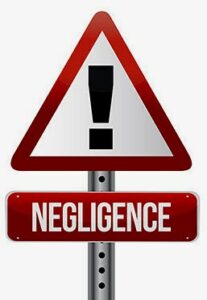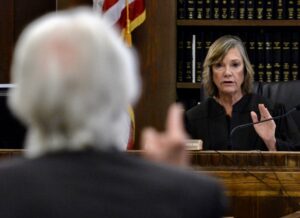
I recently advised an inquiry that the negligence standard for a lawyer/solicitor is the same as that for a notary public.
The authority for that proposition was initially pronounced in British Columbia in the decision Flandro v Mitha (1992) 93 DLR (4th) 222 at paragraph 232.
The Flandro case was followed and unreported decision from new Westminster registry 19980325
SO 847, Crowe and Killeen v Bollong of Mr. Justice Boyle who after a brief review of the standard of care, determined that the standard of care towards the client is the same for lawyers as it is for Notary Publics.
The test he or she must meet is that set out in Tracy and Morin v. Atkins (1980) 16 B.C.L.R. 223 at 227 (B.C.C.A.):
… one has to ask whether, as between the alleged wrongdoer and the person who has suffered damage there is a sufficient relationship of proximity or neighbourhood such that, in the reasonable contemplation of the former, carelessness on his (her) part may be likely to cause damage to the latter – in which case a prima facie duty of care arises.
The notary had failed to advise the clients to have a discretionary trust included in their will so that their disabled child would not lose state medical benefits after their passing. In passing the judge also noted that notaries are not allowed to prepare such discretionary trusts and that the notary should have referred the matter to a solicitor.
“I did not conclude it was necessary that the precise consequences of ineligibility for G.A.I.N. need have been foreseeable in order to bring home to the Defendant in negligence the injury and damage suffered by Sherry Ann. It is enough that it was foreseeable – as I find it was – that a failure to create a discretionary trust would not preserve the body, management and distribution of the funds and would put the wellbeing of Sherry Ann at risk of harm.
[34] The Defendant is to be judged as a reasonably competent notary. He owed the same duty as a solicitor. (Flandro v. Mitha (1992) 93 D.L.R. (4th) 222 at 232).
[35] It is not in itself fatal but the Defendant had no authority under the Notaries Act to draw a Will which included trust provisions (see s. 15). The weight of that exception as it applies in this case is that the testator’s instructions should have triggered the duty to refer her to a solicitor coupetent to draft a Will including the provision she sought which was to establish a discretionary trust. She probably would not have known the phrase “discretionary trust” but she knew what she wanted.




